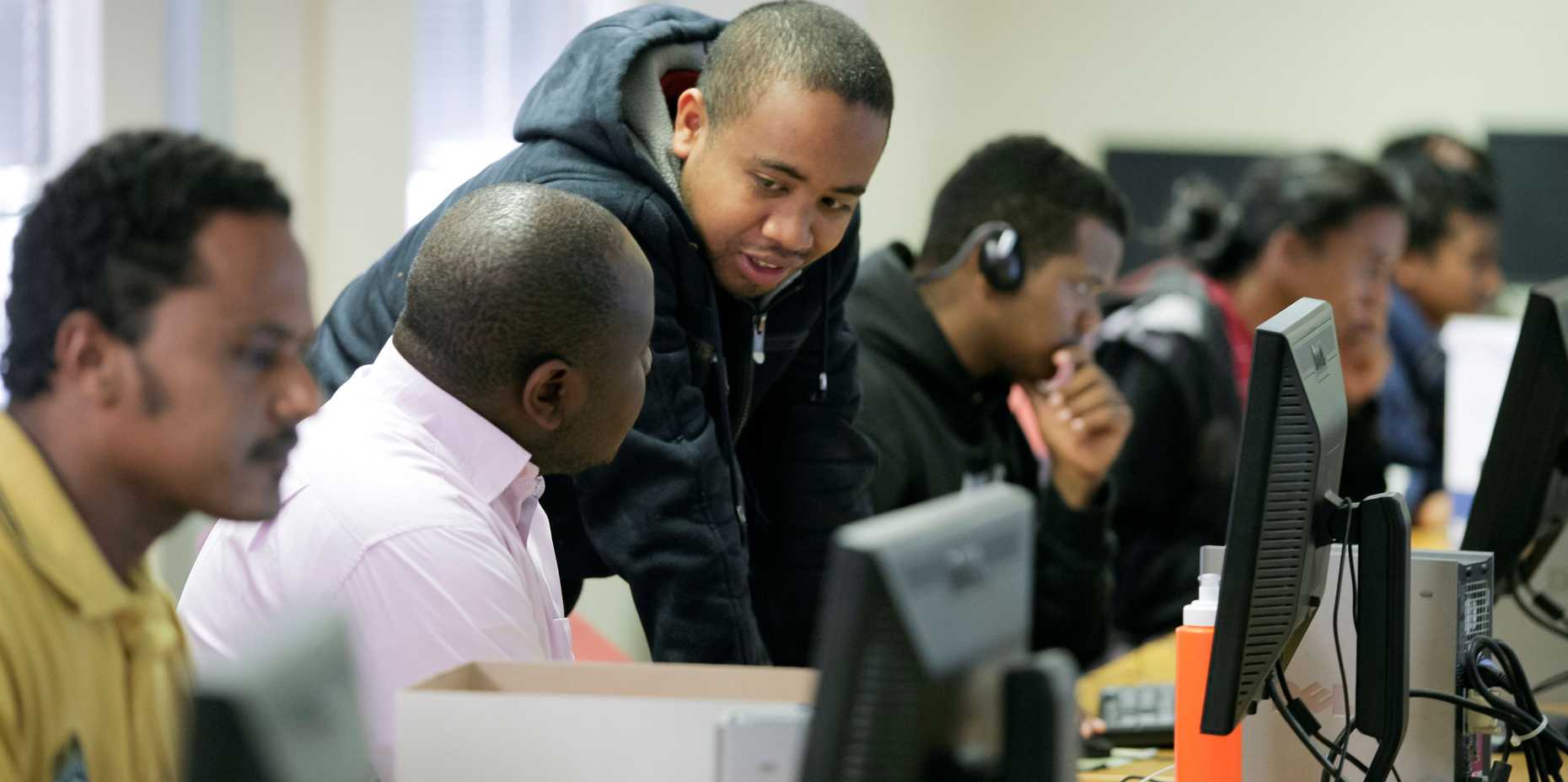Mathematics as a key competency
Data collection and analysis is becoming increasingly important in today’s world. This is particularly true for the economic and societal development of poorer nations. That’s why mathematical education in these countries is in urgent need of improvement, as was shown at Wednesday’s Science and Development Forum.

How can science support the development of poorer countries? Most people would probably turn to disciplines such as agronomy, medicine, transport planning or water supplies, forgetting that mathematics can also make a significant contribution. In many areas, economic and societal developments can only be achieved when the relevant statistical data is available and those involved know how this data can be interpreted.
Paradoxical situation
The importance of mathematics, statistics and data processing for developing and emerging countries was highlighted at this year’s Science and Development Forum, which was held on Wednesday by the Department of Mathematics and ETH Global. The 230 indicators raised by the UN’s Sustainable Development Goals, for example, present these countries with completely new challenges, as Johannes Jütting, Manager of the OECD initiative “Partnership in Statistics for Development in the 21st Century”, noted in his presentation.
He added that the situation in Africa is particularly paradoxical: the wide distribution of mobile phones offers a wealth of new data that could be used for purposes such as transport planning. At the same time, however, many countries lack basic data, such as information on population development or school education. Time and again, ministries, statistical offices and international organisations make completely different statements about particular indicators. “How can a government make appropriate decisions if they start from this kind of position?” asked Jütting.
Untapped potential
Nobody at the forum disputed that there is a marked lack of specialists with sufficient mathematical expertise in the majority of African countries, much the same as in many regions of South America and Asia. “Africa’s potential talents have been nowhere near fully utilised,” declared Barry Green. As Academic Director of the African Institute for Mathematical Sciences (AIMS), he is actively working to ensure that this changes in the next few years.
AIMS was founded 15 years ago in South Africa and now also has centres in Senegal, Ghana, Cameroon, Rwanda and Tanzania. Students at AIMS are selected from a huge number of applicants from various countries and receive an in-depth mathematical education over two years. They are taught by professors from Europe, North America and Asia, who come on a voluntary basis for three weeks to offer courses in their subject area. The students are also supported by tutors who remain in Africa for several months.
An enriching experience
Peter Bühlmann, Head of the Department of Mathematics, is delighted that AIMS offers an experience outside the familiar academic paths: “As mathematicians, we can make a real contribution to the development of these countries, while also gaining experience that broadens our horizons and is thus tremendously worthwhile.”
Werner Stahel, emeritus professor at ETH Zurich’s Seminar for Statistics, agrees with this assessment. He recently taught basic statistics for three weeks as a lecturer in Rwanda. “It was a challenge for me in many respects. I had to recognise, for example, that the students there took in information very differently to the way I was used to here at ETH, though I was also impressed with the enthusiasm that they brought to the subject,” he says. Pawel Morzywolek, who worked for half a year as a tutor in South Africa after finishing his master’s at ETH, also found his experience with AIMS very rewarding: “It was an intense and instructive experience that I wouldn’t have missed for the world.”
Lecturers and tutors needed
Applications from lecturers and tutors are also welcome outside the application deadlines indicated on the AIMS website. If you would like to work at AIMS, please contact the Director of Studies at the relevant centre directly. Information about the programme can be found here: external page https://www.nexteinstein.org/apply/